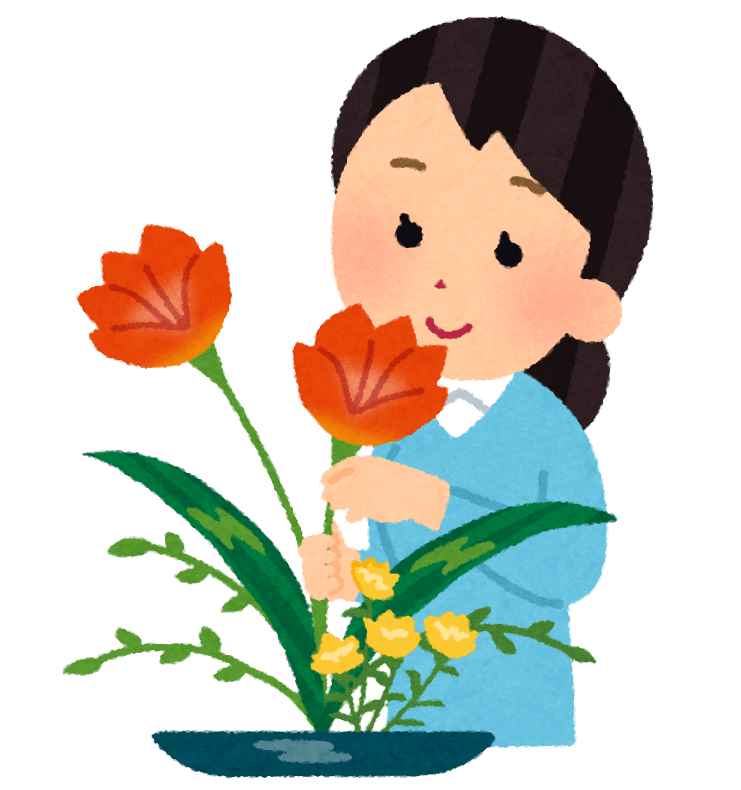Although the best method to start learning the Japanese language is in the classroom, it is equally as important to use that acquired knowledge and skills outside of the classroom. In other words to output what you just learned especially when it comes to speaking. Being in Japan allows you to fully immerse yourself in Japanese. So where in the bustling city that is Tokyo can you practice your Japanese speaking? Let us introduce 6 fun ways to practice Japanese in Tokyo today, for beginners and advanced learners.
頑張れ! Ganbare!
Give it your best shot!

Volunteering in Japan Helps You Speak Japanese
When it comes to volunteering in Tokyo, there’s an abundance of opportunities available, from beach cleaning to volunteering in big sports events such as marathons, to litter picking in the streets of Tokyo.
Even if you are a beginner in Japanese or don’t yet feel confident, volunteering is a great way to start practicing your Japanese speaking skill. There are both opportunities for regular volunteers and one-off type opportunities.
You can find volunteering organizations looking specifically for English speakers. These are usually for English camps or cultural exchanges. To fully immerse yourself in the language we recommend looking at the Tokyo Volunteer Legacy Network, a Japanese volunteering website based in Tokyo to see what opportunities they have to offer.
Litter picking is an easy way to start that requires no experience. Advanced learners, on the other hand, can offer to volunteer with their local Ward Office as an interpreter for natural disasters. Ward offices typically have a dedicated page for volunteers where you can also check out other opportunities, most of which are posted in Japanese. Finding your ward office’s or local community’s signboard is another way to stay up to date with volunteering opportunities.
If you’ve been living in Japan for a while you’ll certainly be familiar with matsuri (festivals) but did you also know that you can participate in them? Usually, as the festival draws near there will be a notice somewhere at the shrine if they are recruiting participants. It costs a fee to participate but is a once in a lifetime opportunity! Ask around your local shrine for more information.

Join Circles and Meetup Groups in Japan!
When I meet fellow expats, I often hear of how difficult it is to make Japanese friends. Living in Tokyo, the most populated city in the world, it can sometimes be difficult to approach people. This problem isn’t foreign-exclusive and is why the trend of share houses such as social apartments is catching on. More recently websites such as tsuna geito (つなげーと) have come into existence. Despite the URL of the website spelling out “tuna gate” the name of this website actually comes from the Japanese word tsunageru which means to connect and that is what this website is all about, making connections.
Tsuna geito is free to use and has regular get-togethers with the freedom to choose what you want to do from playing board games (recommended for advanced learners), to sports such as basketball or hiking (recommended for beginners) and even foodie gatherings in trendy restaurants!
If you can’t find what you want to do, you can even create your own event by subscribing to their service and can potentially make money from it. Visit their website using the link here. If you are more interested in sports, a website called Sports Circle (スポーツサークル) organizes football, basketball, city runs and even snowboarding trips! Team sports are a wonderful way to make friends and integrate into a community.
If you are looking for a more international meetup then check out the website Meetup which
has groups and events categorized by interest. While this website is a great resource for making friends and finding communities, the only downfall is that people tend to default to speaking English. For those that truly want to immerse themselves in Japanese, we recommend looking for societies that are advertised in Japanese for Japanese people.

Take a Japanese Cultural Class
Just as you would expect from any big city there are endless opportunities in Tokyo to explore. Whatever hobby you had back home, you are bound to find a community here in Tokyo. Joining like a tea ceremony, flower arrangement or pottery is a great fun way to practice Japanese because you’re learning an additional skill.
Below we have selected three classes for creatives looking to stretch their imagination and learn some new skills.
Learn the art of Ikebana, flower arranging, at Xika Salon in Omotesando. This highly regarded studio has regular flower arrangement lessons. Flower arranging is meditative by nature, nurturing all the senses with floral scents, and bursts of color and giving you a break from city life with a return back to nature. Flowers in the home have also been shown to improve mood and productivity with many remarking that they feel happier after receiving flowers or flower arranging. This class is beginner friendly and you can first try a one-on-one trial lesson with the teacher who is very knowledgeable about ikebana. Visit their website here for more details.
Ever wanted to learn Japanese home cooking? The culinary school irodori cooking (彩りクッキング) offers classes from beginner to advanced just an 8-minute walk away from Shibuya station. Classes are taught by professional chefs and meals are nutritionally balanced.
These classes are great for beginners that have zero experience in the kitchen as they go through basic culinary skills such as the correct way to slice and dice. In fact, 97% of their class members are beginners and with small class sizes.
Try your hand at pottery at Yushima Tousuke pottery class in Ueno. For those that have never tried pottery, this is a great way to learn some new Japanese and make friends at the same time. They also offer courses for those that want to continue learning pottery at a more advanced level.

Drink With the Locals at an Izakaya
Izakaya is a Japanese bar that serves alcohol and side dishes to share. Just like at your traditional pub, you can sometimes meet locals here while sharing a drink and a bite to eat. It is best to seek out your local izakaya to get to know those in your neighborhood while practicing your Japanese conversational skills. Smaller bars like those that line Shinjuku’s Golden Gai may be easier to strike up a conversation. There are many events for nomikai (drinking parties) that you can find online but rather than for making friends these are often “matchmaking events”.

Sing Your Heart Out at Karaoke
If you’re feeling nervous to speak to strangers in Japanese then you can always warm up your Japanese vocal cords in a private karaoke room. Singing the Japanese versions of Disney songs that you know in your own language is a great way to start, one of the fun ways to practice Japanese. If you haven’t been to Japanese karaoke before, you can check out big chains such as Big Echo, Karaoke-kan and Joy Sound. You usually pay per person per hour and they’ll ask you at the desk how many hours you intend to stay. You can even order refreshments such as food and drink to your room.
Check out: 10 Best Karaoke Japanese Songs
Converse at a Language Exchange
There are numerous language exchange meetups organized all around Tokyo all year round. The hosts of these exchanges are often language schools — like Coto Academy!
Other organizations such as MeetUp and an English Only Cafe in Tokyo have regular meetings. These exchanges all have a different system of running. For example, the organizer might set a timer and dedicate 10 minutes for only English and then 10 minutes for only Japanese. This means that you will definitely get conversation time in Japanese. These events not only give you essential speaking output, but they also allow you to meet people you otherwise would not have had the chance to meet and opens the door to new possibilities and friendships.
You may find that by attending a language class or an international event you can meet another expat who is also learning Japanese but doesn’t speak your mother tongue. Something that helped me a lot as a language learner was speaking to my friend who doesn’t speak English. This meant that we only had Japanese to communicate and it helped motivate us as we studied and got better in our target language. Although this friendship started off as a lot of hand gestures, umming and erring while looking up words in an online dictionary, it became one of my strongest friendships and we have traveled to Japan together and to this day still video call in Japanese.
Learning another language is one of the most rewarding things you can do because you never know what possibilities and opportunities will present themselves. It will be your Japanese that will be the key to your Japan.
Conclusion
Overall, there are other unexpected, fun ways to practice Japanese, but these are the top easy things you can do. Learning another language is one of the most rewarding things a person can do but just why is that? Ask a language expert and they’ll most likely tell you that it’s because it improves your memory, and your ability to multitask, and makes your brain more flexible. Then ask an ex-pat, from them you’re more likely to receive an answer that says it makes for easy living, doing daily tasks, and working.
So if you would like to improve your Japanese for your daily life, work — or just as a hobby, why not join a Japanese class at Coto Academy? We have a range of flexible courses ranging from beginner crash courses to business Japanese!
We also have an online lesson portal, where you can easily browse lessons and book a class. If you’re ready to get started, fill out the inquiry form below for a free level check and course consultation!
Is speaking Japanese hard?
The more you practice, the better your Japanese will become and the more confident you will be to use it. As the saying goes practice makes perfect. We recommend putting yourself in situations where you will have to use Japanese and find ways to connect your hobbies with your learning, this way you will be more motivated to use and further your Japanese.
What are some fun ways to practice Japanese speaking skill?
Some great ways to practice speaking Japanese include:
- Joining language exchange events
- Volunteering in Japan
- Doing karaoke
- Joining circles or meetup groups
- Attending cultural classes like pottery, cooking, tea ceremony
- Making friends and conversing in Japanese
How to speak Japanese for beginners?
If you live in Japan, everyday activities such as going to the grocery store will help improve your Japanese little by little but by taking a class you can accelerate your learning towards having conversations with Japanese people. Immersion is important to become familiar with the sounds so watching Japanese television and listening to the radio will help fine-tune your listening skills. A little practice every day goes a long way.
